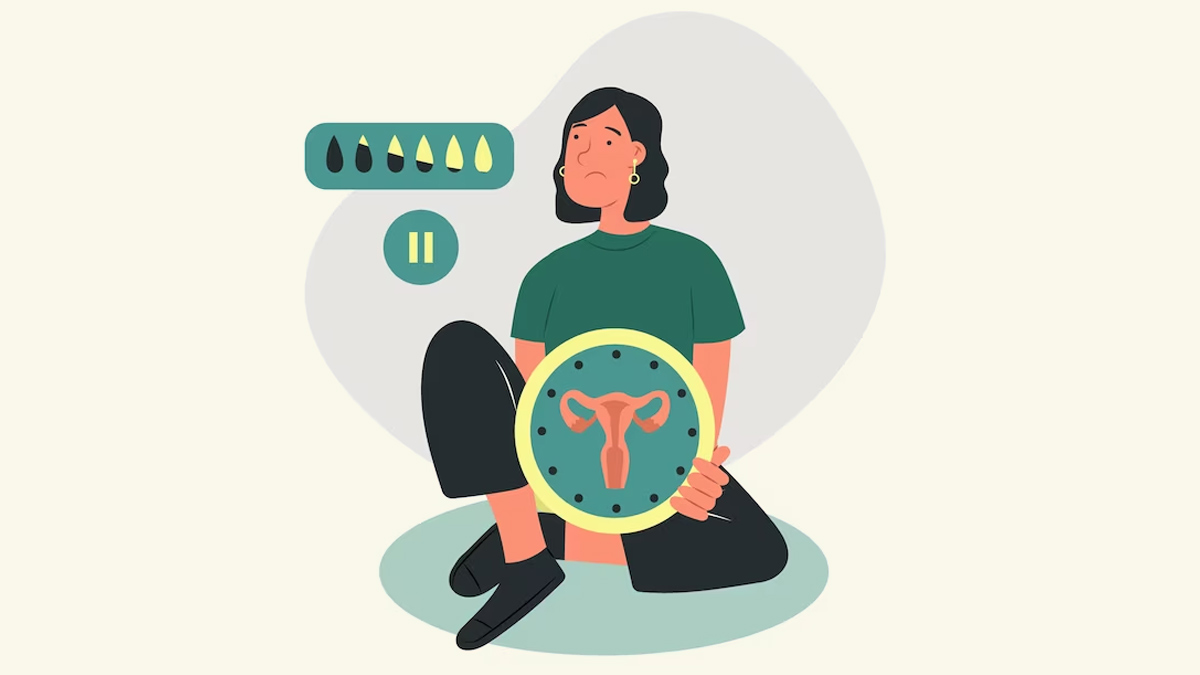
Did you know your menstrual cycle can be affected due to poor gut health? The gut microbiome, a community of trillions of microorganisms residing in the digestive tract, plays a crucial role in maintaining overall health, including reproductive health. To shed light on the same, we spoke to our expert Dr Anusha Rao P, Consultant Obstetrician and Gynaecologist, Yashoda Hospitals, Hyderabad, who explained how poor gut health causes irregular periods.
The Role of Gut Microbiome in Hormone Metabolism

Dr Rao said, “The gut microbiome is involved in the metabolism of hormones, such as oestrogen. Oestrogen levels fluctuate throughout the menstrual cycle, and hormonal imbalances can lead to irregular periods, heavy bleeding, or even missed periods. A healthy gut microbiome helps regulate oestrogen levels, ensuring they stay within a normal range. “
Signs Of Poor Gut Health

- Digestive Issues: Frequent problems like bloating, gas, diarrhoea, or constipation may suggest an imbalanced gut.
- Food Intolerances: Developing new sensitivities to certain foods might indicate gut issues.
- Unintended Weight Changes: Unexpected weight gain or loss without dietary changes or increased exercise could be related to your gut health.
- Fatigue and Sleep Disturbances: Poor gut health may lead to sleep problems or persistent fatigue, even after a full night's rest.
- Skin Issues: Conditions like acne, eczema, or persistent skin irritations might be linked to an unhealthy gut.
- Frequent Infections: A compromised gut can weaken your immune system, making you more susceptible to illnesses.
- Autoimmune Disorders: Some autoimmune diseases are associated with gut health, such as Crohn's disease or celiac disease.
- Mood Changes: Your gut and brain are interconnected, so an unhealthy gut might contribute to mood swings, anxiety, or depression.
- Bad Breath: Persistent bad breath could be a sign of an imbalanced gut microbiome.
Gut Health and Inflammation

Dr Rao added, “Poor gut health can also lead to inflammation in the body. Chronic inflammation can disrupt the delicate balance of hormones necessary for a regular menstrual cycle.” Inflammation in the gut can release inflammatory molecules that affect the reproductive organs, leading to conditions that interfere with normal menstruation. It can also lead to conditions like Polycystic Ovary Syndrome (PCOS) or endometriosis, which are known to affect menstrual regularity and cause severe menstrual pain. According to the Multidisciplinary Digital Publishing Institute (MDPI), problems with gut microbes can be connected to a condition called preeclampsia in pregnancy (a condition in which a woman’s blood pressure goes too high).
Gut Health and Immune Function
Dr Rao further said, “Gut health influences the immune system. A weakened immune system can increase the risk of infections or inflammatory conditions, which can disrupt the menstrual cycle and cause discomfort. A compromised immune system can make the body more susceptible to infections, leading to pelvic inflammatory disease or other issues that impact menstrual regularity.”
Also Read: Severe Pain During Menstruation? Expert Explains Dysmenorrhoea, Types, Risk Factors, And Treatment
The Gut-Brain Connection
The gut-brain connection is essential for proper health. Dr Rao added, “Stress and mental health issues can disrupt the gut microbiome and, in turn, affect the menstrual cycle. It can affect the gut-brain axis, leading to changes in gut motility and the composition of the gut microbiota. Also, high stress levels can lead to irregular periods or even amenorrhoea.”
Supporting Gut Health for a Healthy Menstrual Cycle

Dr Rao informed, “To maintain good gut health and support a healthy menstrual cycle, a balanced diet rich in fibre, probiotics, and prebiotics is crucial. These nutrients nourish the good gut bacteria and promote hormonal balance.” Also, reduce alcohol consumption as long-term alcohol use changes the gut bacteria, causing an increase in the activity of beta-glucuronidase and higher amounts of oestrogen byproducts. Apart from this, managing stress through techniques like meditation and regular exercise can also contribute to overall well-being and a healthier menstrual cycle.
Bottomline
Dr Rao concluded, “Poor gut health can have a profound impact on the menstrual cycle through its influence on hormones, inflammation, immune function, and the gut-brain connection. Prioritising gut health with a healthy lifestyle and diet can play a pivotal role in promoting regular and comfortable menstrual cycles.”
[Disclaimer: The information in this article is shared by a registered healthcare professional and is for informational purposes only. Hence, we advise you to consult with your expert if you face any complications.]







